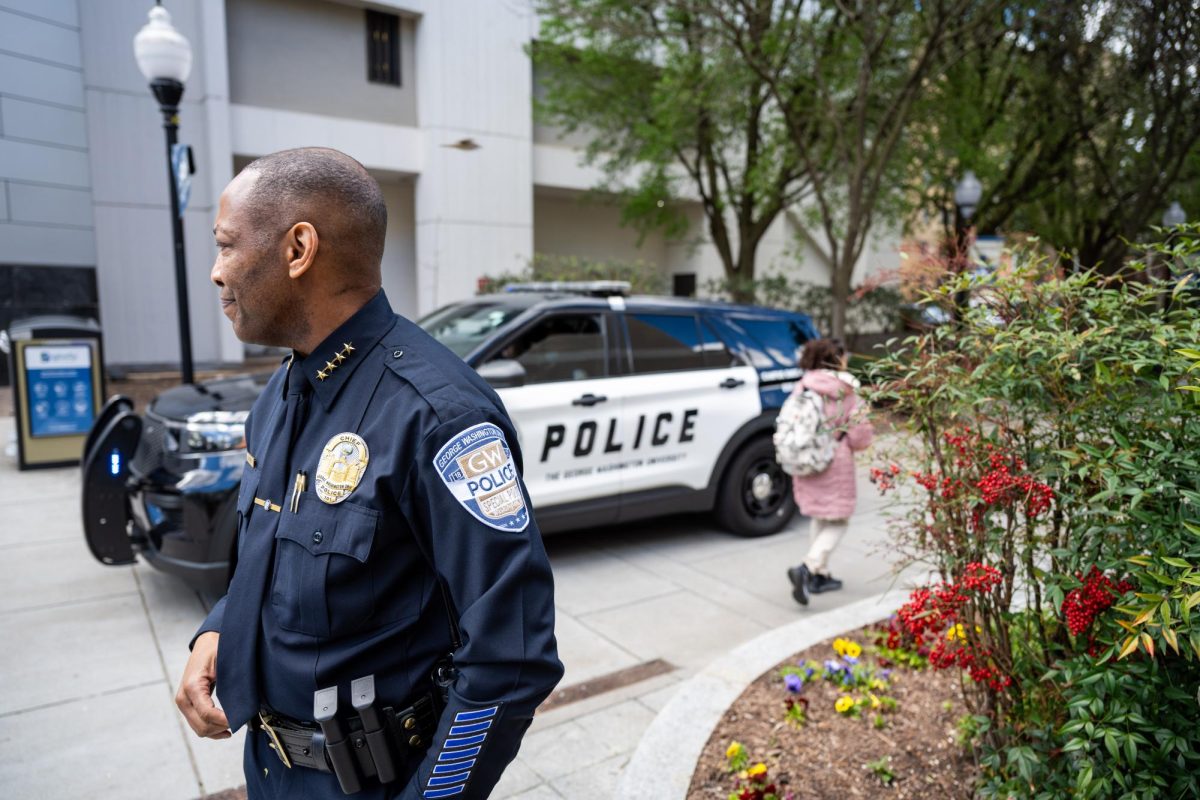
This post was written by Hatchet reporter Joy Finneran.
Foreign diplomats highlighted the use of modern technology as a tool to bridge cultural gaps and create innovative solutions to international problems in an event hosted by GW’s Institute for Public Diplomacy and Global Communication Thursday.
The event, titled “The Last Three Feet,” focused on international media engagement and foreign perspectives on America, featuring prominent speakers such as figure skater and Department of State envoy Michelle Kwan, recently retired Senior Foreign Service Officer Michael Anderson and public diplomacy officer in Brazil Jean Manes.
Kwan, a two-time Olympic medalist, discussed her public diplomacy experiences in countries like Argentina, Russia, and Singapore.
“By having a dialogue, a conversation, not a monologue, hopefully they can learn about America,” Kwan said.
She elaborated on being a positive influence, both as an athlete and as the United States’ first public diplomacy envoy. She assumed the role in 2006 to use her experience as a way to facilitate conversations among international youth in the U.S. and foster a greater understanding of America abroad.
In a panel discussion later, Anderson and Deputy Assistant Secretary for Public Diplomacy in Africa Affairs Bureau Bruce Wharton similarly emphasized the importance of educating other nations about the U.S.
Anderson elaborated on his experience with @America, a program based in Jakarta, Indonesia that works to inform Indonesian citizens of American culture and its technological advances.
“[It’s] the world’s first high-tech American cultural center,” Anderson said.
With the help of technology like Google’s Liquid Galaxy – which allows users to see a 3D version of the U.S. – cultural immersion through @America is becoming more accessible, he said.
Other technological advances, Wharton explained, have assisted in solving problems of the Third World.
The program Apps 4 Africa challenged the technologically inclined to create applications that would assist with problems faced by the inhabitants of impoverished areas of the continent. The winning app, iCOW, tracks the hormonal cycles of cows to make livestock breeding easier for African farmers.
“The results were stronger institutions, economic opportunities, development and support,” Wharton said.
As technology improves in the future, the panelists expected intercultural communication to improve as well.
“It’s all about building relationships from people to people, country to country,” Kwan said.




